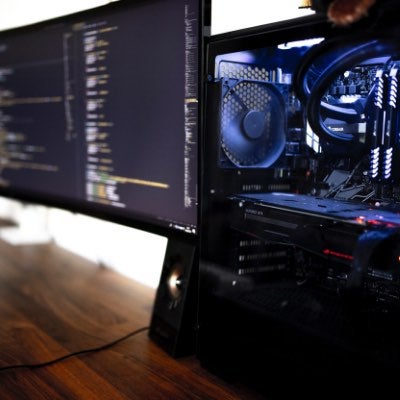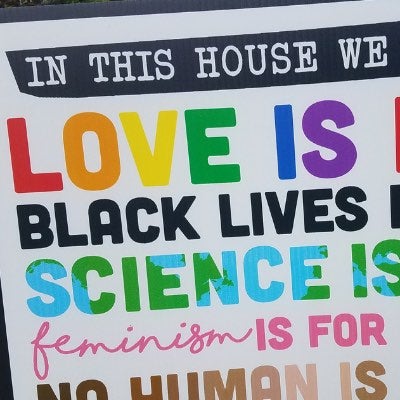2026 Summer Sessions Courses
Use our Summer Sessions Course Finder to get descriptions, instructor contact information and, if available, a syllabus. Some syllabi may be past versions that provide a relative idea of course expectations, and may be subject to change. For the most up-to-date course information and to register, use e-Campus, the University’s online system. Your academic advisor can help you identify the summer courses that may best help you achieve your academic goals. If you are in need of academic advising for your summer enrollment, please make an appointment with your advisor via Starfish.
NOTE: Many online-synchronous sections will include asynchronous online content and assignments in addition to the required meeting days and times listed below.
Learn more about URI Summer course types, including asynchronous, synchronous, and blended.
2026 Summer Sessions Course Finder
AAF 201: Introduction to African-American Studies
Interdisciplinary exploration of some of the pivotal themes and issues in the study of peoples of African descent.
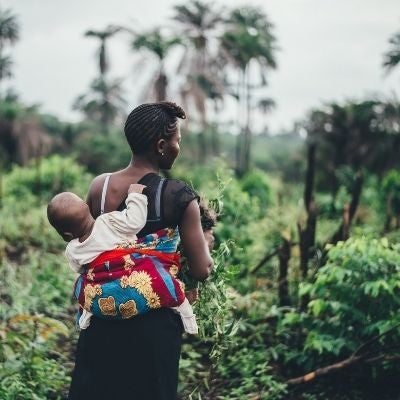
February 3, 2026
AAF 240: Race and Ethnicity
Relations among the various ethnic, religious, racial, and political minorities and majorities, with special reference to the United States.

February 12, 2026
AAF 300: Special Topics in African and Afro-American Studies
Selected contemporary topics from the field of African and Afro-American studies.

AAF 399: Introduction to Multicultural Psychology
Introduction to multiculturalism as major paradigm.

August 19, 2025
AAF 399: Introduction to Multicultural Psychology
Introduction to multiculturalism as major paradigm.

May 27, 2025
ACC 199: Financial Accounting for Nonbusiness Majors
Basic concepts used in financial accounting for business organizations.

ACC 201: (BUS) Financial Accounting
Basic concepts and systems used in financial accounting for business organizations.

February 3, 2026
ACC 201: (BUS) Financial Accounting
Basic concepts and systems used in financial accounting for business organizations.

August 19, 2025
ACC 202: (BUS) Managerial Accounting
Basic techniques and systems used by management accountants in budgeting, cost accounting, cost analysis, and control.

February 3, 2026
ACC 202: (BUS) Managerial Accounting
Basic techniques and systems used by management accountants in budgeting, cost accounting, cost analysis, and control.

May 27, 2025
ACC 301: (BUS) Intermediate Accounting I
Theoretical aspects of accounting principles and their application to preparation and analysis of corporate financial statements.

August 19, 2025
ACC 301: (BUS) Intermediate Accounting I
Theoretical aspects of accounting principles and their application to preparation and analysis of corporate financial statements.

ACC 302: (BUS) Intermediate Accounting II
Continuation of corporate financial reporting.

May 27, 2025
ACC 303: (BUS) Cost Accounting
Cost and managerial accounting systems and concepts including cost allocation, actual and standard cost systems, cost and profit planning, and control systems.

AFS 105G: Food from the Sea
Introduction to capture fisheries and aquaculture and their contribution to food supply, methods of production, environmental and ecological considerations, practices employed, processing, and marketing, with a regional New England focus.

February 6, 2026
AFS 105G: Food from the Sea
Introduction to capture fisheries and aquaculture and their contribution to food supply, methods of production, environmental and ecological considerations, practices employed, processing, and marketing, with a regional New England focus.

AFS 132G: Sustainable Agriculture, Food Systems, and Society
Food is essential to life, and a foundation of civilization.

August 19, 2025
AFS 132G: Sustainable Agriculture, Food Systems, and Society
Food is essential to life, and a foundation of civilization.

May 27, 2025
AFS 190: Issues in Biotechnology
Introduction to modern biotechnology in medical, pharmaceutical, forensic, agricultural, marine, and environmental applications.
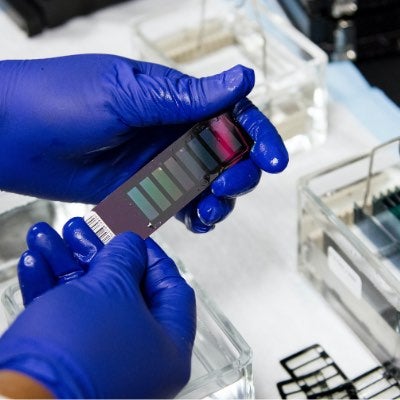
August 19, 2025
AFS 415: Fishery Ecology
Ecological characteristics of fishes and shellfishes in capture fisheries worldwide.

February 6, 2026
APG 325G: American Dilemma: Who “Owns” Native America?
Examines researchers? perceived rights to ownership of Native American bodies, languages, and human remains.
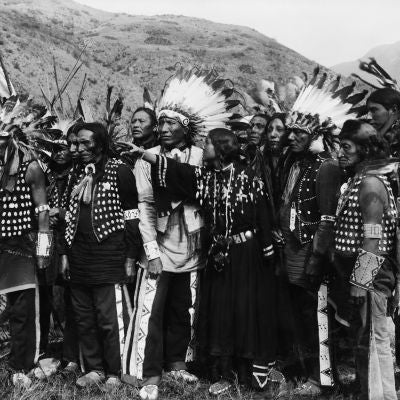
August 19, 2025
APG 396: Archaeology Field School
Archaeology field experience, usually provided through a terrestrial or underwater field school.
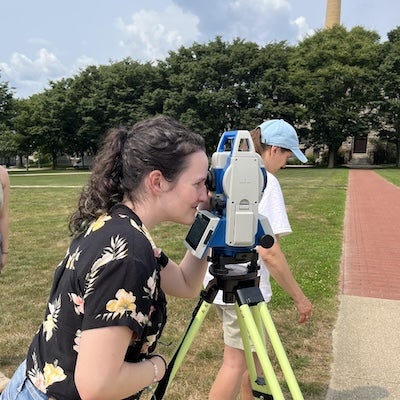
February 3, 2026
ART 303: Topics in Studio: Drawing; En Plein Air
Intensive studio art course exploring multiple mediums and processes related to photo-based image making.

August 19, 2025
ART 362: Contemporary Art
Investigates current trends in art including installation, performance, and multimedia approaches from the second half of the twentieth century to today.

ART 380: Graveyards & Cemeteries of New England
This course introduces students to the concepts and forms of burial and commemoration in New England from the 17th century period of European colonization to the early 20th century.

AST 108: Introductory Astronomy: Stars and Galaxies
Celestial sphere, constellations. Constitution of sun, stars, nebulae, and galaxies.

AST 118: Introductory Astronomy: The Solar System
Celestial sphere, Earth, formation of and motions and characteristics of objects in solar system, the Sun, exoplanets, and search for extraterrestrial life.

May 27, 2025
AVS 101: Introduction to Animal Science
Animal industry's role in world and national economy; inheritance, growth, physiology, nutrition, and diseases of domestic animals and poultry; geographic distribution and marketing of animal products.

February 6, 2026
AVS 132G: Sustainable Agriculture, Food Systems, and Society
Food is essential to life, and a foundation of civilization.

August 19, 2025
AVS 132G: Sustainable Agriculture, Food Systems, and Society
Food is essential to life, and a foundation of civilization.

May 27, 2025
AVS 332: Animal Diseases
Specific diseases of avian and mammalian species; etiology, symptoms, and control.
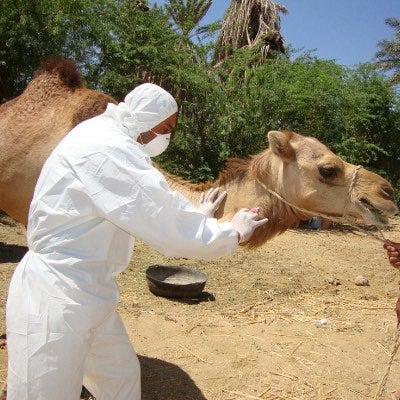
February 6, 2026
AVS 343: Behavior of Managed Animals
Explores approaches for objectively assessing and interpreting the function and causes of animal behavior to improve animal care and management.

February 4, 2026
BAI 109: (BUS) Business Computing and Quantitative Analysis
Applications, concepts, and skills relevant to technology and quantitative processes in business.

August 19, 2025
BAI 111: (BUS) Introduction to Business Analysis and Applications
Selected mathematical tools and techniques for analysis of business and economic problems and as aids in decision making.

BAI 210: (BUS) Managerial Statistics I
General statistical methods used in the collection, presentation, analysis, and interpretation of statistical data.
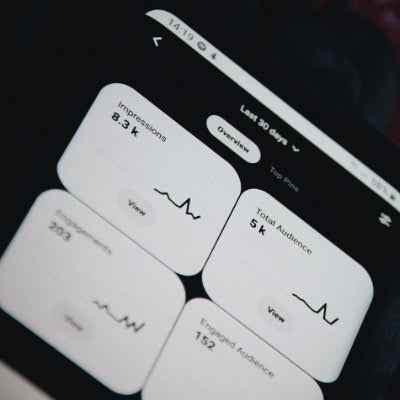
BAI 310: (BUS) Business Data Analysis with Excel
Introduces intermediate and advanced spreadsheet concepts for business applications.
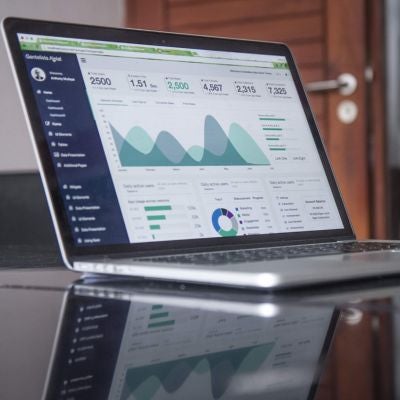
BIO 101: Principles of Biology I
Chemistry, structure, metabolism, and reproduction of cells.
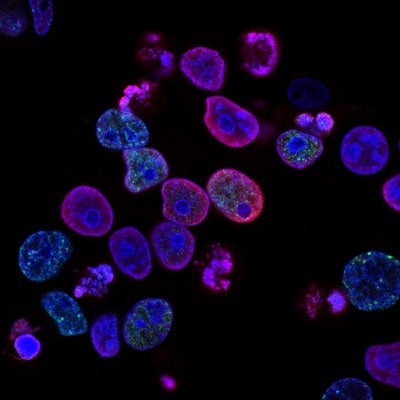
May 27, 2025
BIO 103: Principles of Biology Laboratory I
Selected laboratory exercises to accompany BIO 101.
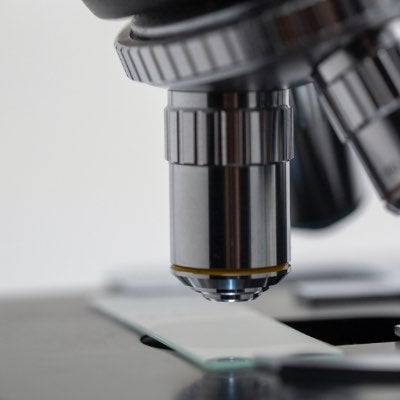
August 19, 2025
BIO 104: Principles of Biology Laboratory II
Selected laboratory exercises to accompany BIO 102.
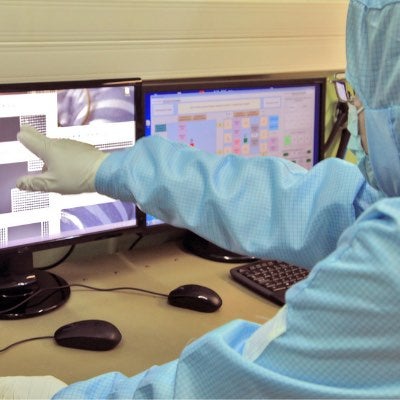
May 27, 2025
BIO 110: Fundamentals of Biology
Fundamental biological concepts including the chemical and cellular basis of life, genetics, evolution, and organismal form and function.
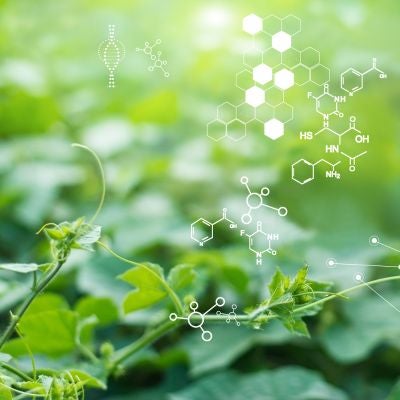
August 19, 2025
BIO 181G: The Information Age: From Politics to Medicine
How big data affects our society, from advertising to politics to medicine.
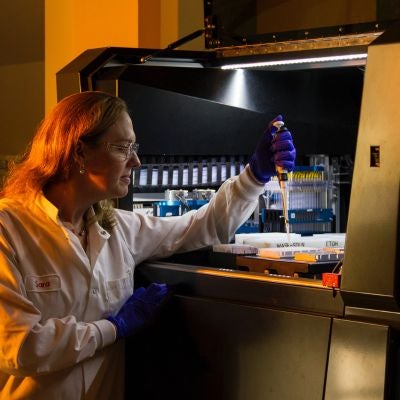
February 3, 2026
BIO 220: Fundamentals of Human Anatomy and Physiology I
Explores the integration of the structures and functions of the human organism through a systems approach; including the biochemical properties of the cell, integumentary, muscular, skeletal, and nervous systems.
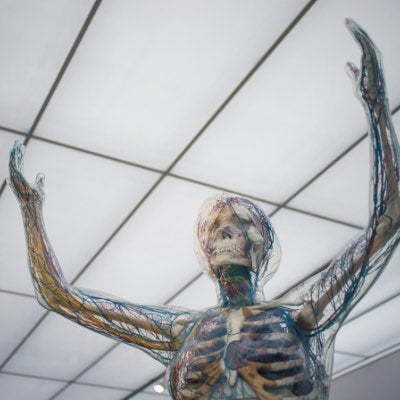
August 19, 2025
BIO 220: Fundamentals of Human Anatomy and Physiology I
Explores the integration of the structures and functions of the human organism through a systems approach; including the biochemical properties of the cell, integumentary, muscular, skeletal, and nervous systems.

May 27, 2025
BIO 221: Fundamentals of Human Anatomy and Physiology I Laboratory
Fundamental structure and function of organ systems of the human body explored through models, dissections, and experiments.
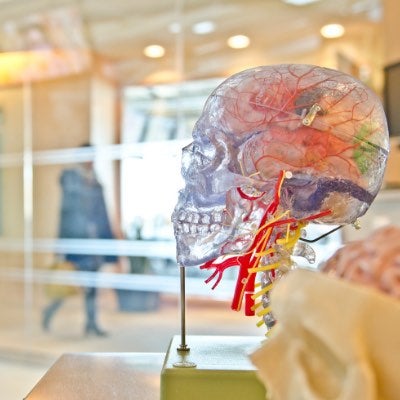
February 13, 2026
BIO 221: Fundamentals of Human Anatomy and Physiology I Laboratory
Fundamental structure and function of organ systems of the human body explored through models, dissections, and experiments.

BIO 222: Fundamentals of Human Anatomy and Physiology II
Explores the integration of the structures and functions of the human organism through a systems approach; including senses, endocrine, cardiovascular, lymphatic, immune, respiratory, digestive, urinary, and reproductive.
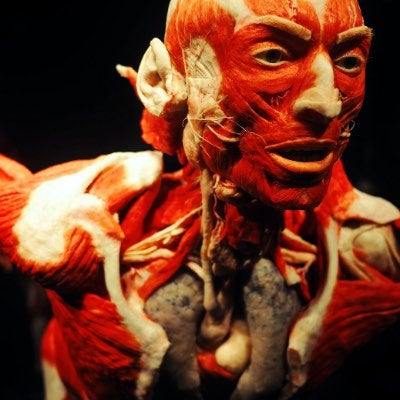
August 19, 2025
BIO 222: Fundamentals of Human Anatomy and Physiology II
Explores the integration of the structures and functions of the human organism through a systems approach; including senses, endocrine, cardiovascular, lymphatic, immune, respiratory, digestive, urinary, and reproductive.

May 27, 2025
BIO 223: Fundamentals of Human Anatomy and Physiology II Laboratory
Fundamental structure and function of organ systems of the human body explored through models, dissections, and experiments.
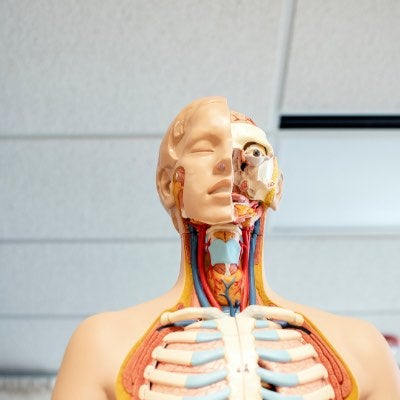
February 13, 2026
BIO 223: Fundamentals of Human Anatomy and Physiology II Laboratory
Fundamental structure and function of organ systems of the human body explored through models, dissections, and experiments.

BIO 262: Introductory Ecology
Structure and function of ecosystems, limiting factors, population dynamics, population interactions, and community relationships.

February 3, 2026
BIO 262: Introductory Ecology
Structure and function of ecosystems, limiting factors, population dynamics, population interactions, and community relationships.

August 19, 2025
BIO 300: Physiology of Exercise
Applied human physiology, with applications to physical activity, exercise, and sport.

February 12, 2026
BIO 301: Physiology of Exercise Laboratory
Student participation in laboratory sessions designed to understand the physiology of exercise relating to body composition, EKG, pulmonary, and metabolic functions.

BIO 331: Parasitology
An introduction to the biology of parasitic organisms, including life cycles, infection pathways, and impacts on hosts.

August 19, 2025
BIO 331: Parasitology
An introduction to the biology of parasitic organisms, including life cycles, infection pathways, and impacts on hosts.

May 27, 2025
BIO 352: General Genetics
Introduction to basic genetic principles and concepts leading to an understanding of genes, heredity, and the nature of inherited variation.
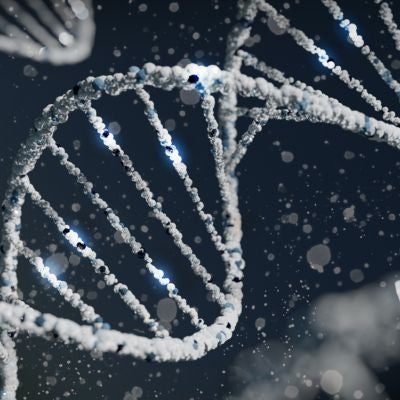
August 19, 2025
BIO 352: General Genetics
Introduction to basic genetic principles and concepts leading to an understanding of genes, heredity, and the nature of inherited variation.

May 27, 2025
BIO 355: Marine Invertebrates of Southern New England
Collection and identification of marine invertebrates of southern New England.
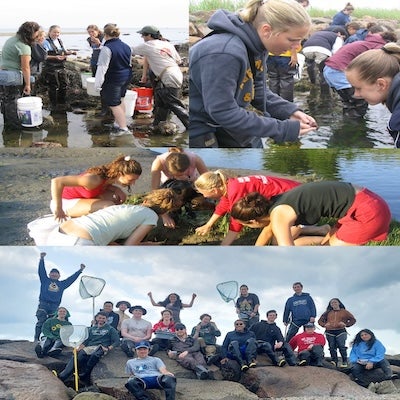
February 10, 2026
BIO 396: Biology And Society
A seminar course dealing with the impact of biological discoveries on societal questions and with the social influences that affect biological discovery.
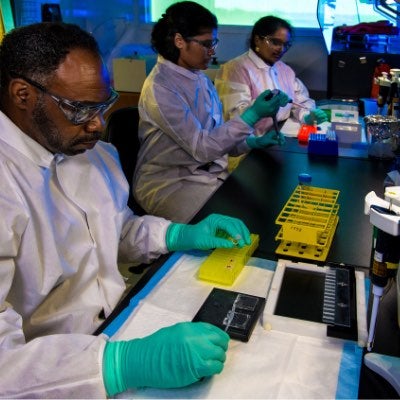
May 27, 2025
BIO 492: Independent Biological Research
Individualized laboratory, field, or literature research projects.
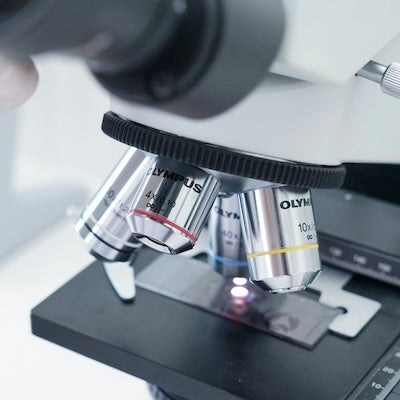
February 3, 2026
BTC 199: Biotechnology Manufacturing Internship
Professional field experience in biotechnology manufacturing.

August 19, 2025
BTC 522: Biotechnology Manufacturing for the Life Sciences
This course is designed to provide the student with an overview of the biopharmaceutical manufacturing process.

BUS 509: Law and Ethics
The course introduces basic legal and ethical principles that are relevant in industry.

February 6, 2026
BUS 532: Leadership
The course introduces basic principles and theories of leadership, explores the concepts of emotional intelligence, communication, motivation, accountability, interprofessional team building and leadership development.

BUS 576: Sport Marketing
Integrated approach to problems in major areas of business management with emphasis on administrative and executive viewpoint.

BUS 593: Internship in Business Administration
Participation in business administration under the field supervision of a sponsoring organization with evaluation by the College of Business.

February 12, 2026
CCJ 274: Criminal Justice System
The American system of criminal justice, general processing of cases, principal actors, study of theories of criminal law, and pretrial detention and sentencing.

August 19, 2025
CCJ 274: Criminal Justice System
The American system of criminal justice, general processing of cases, principal actors, study of theories of criminal law, and pretrial detention and sentencing.

May 27, 2025
CCJ 280: (330) Introduction to Policing
Examines the development and history of policing as an institution.
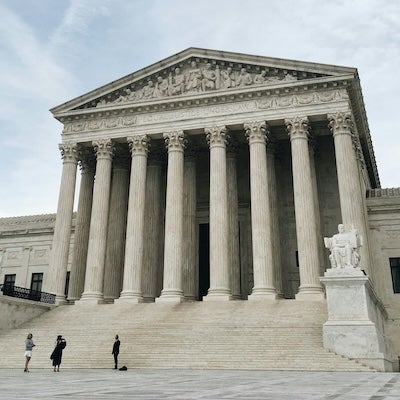
February 3, 2026
CCJ 285: Introduction to the Courts and Criminal Procedure
Examines the origins and development of the current criminal court system in the US.

CCJ 290: Introduction to Corrections
Examines the origins and development of the modern correctional institution; traditional methods of punishment and rehabilitation; pains of imprisonment, community corrections and reentry and current innovations.

August 19, 2025
CCJ 290: Introduction to Corrections
Examines the origins and development of the modern correctional institution; traditional methods of punishment and rehabilitation; pains of imprisonment, community corrections and reentry and current innovations.

May 27, 2025
CCJ 334: Violent Crime
Examines patterns of violent crime and explores theory and research on the causes and consequences of violence.

February 3, 2026
CCJ 450: White Collar Crime
An examination of white collar crime; its types, causes, consequences, and legal and public policies designed to control it.

May 27, 2025
CHM 102: Laboratory for Chemistry 101
Experimental applications of chemical concepts and reactivity emphasizing safety and technique.
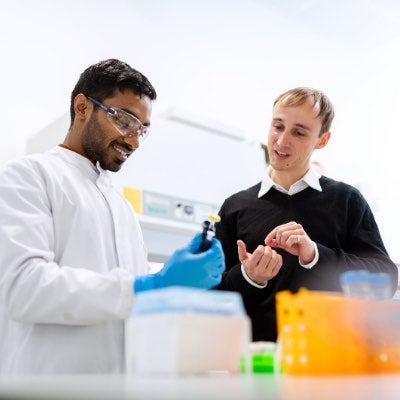
CHM 103: Introductory Chemistry Lecture
One-semester general chemistry course designed for students whose curriculums require the one-semester organic chemistry course, CHM 124.

CHM 112: General Chemistry Lecture II
Chemical kinetics, equilibrium, elementary thermodynamics and electrochemistry integrated with descriptive chemistry and practical applications.

May 27, 2025
CHM 124: Introduction To Organic Chemistry
Elementary principles of organic chemistry with emphasis on aliphatic compounds, especially those of physiological significance such as amino acids and proteins, carbohydrates, fats, and waxes.
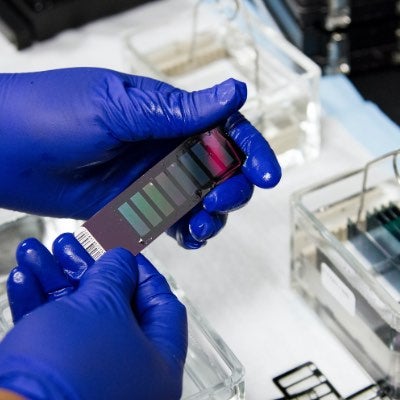
CHM 126: Laboratory for Chemistry 124
Introduction to chemistry procedures, with emphasis on properties of substances of physiological significance.
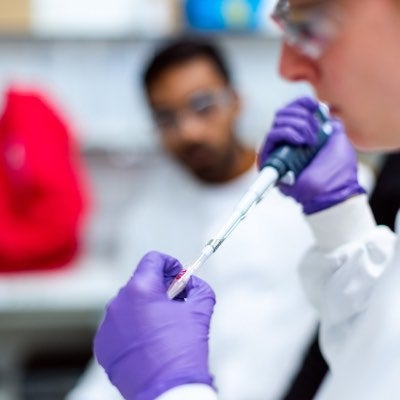
CHM 226: Organic Chemistry Laboratory
Common techniques and typical preparative methods in both aliphatic and aromatic series.

February 16, 2026
CHM 227: Organic Chemistry Lecture I
General principles and theories with emphasis on classification, nomenclature, methods of preparation, and characteristic reactions of organic compounds in aliphatic series.

August 19, 2025
CHM 228: Organic Chemistry Lecture II
Continuation of CHM227 with emphasis on the aromatic series.

May 27, 2025
CHN 101: Beginning Chinese I
Fundamentals of grammar and pronunciation, exercises in reading, writing, and conversation.
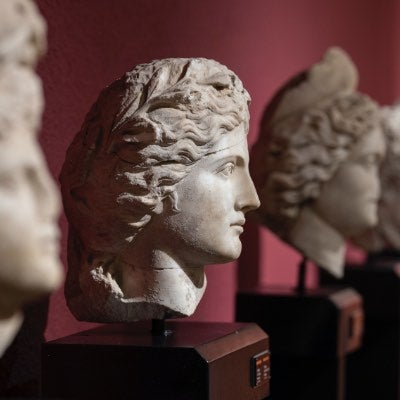
February 3, 2026
CLA 395: Greek Mythology: Gods, Heroes, and Humans
Nature and function of myth in the ancient world and today: ideas of divinity, relationship of divine to human, origins of cosmos and human society, male and female principles, power hierarchies, coming of age, the heroic experience.

August 19, 2025
CLA 395: Greek Mythology: Gods, Heroes, and Humans
Nature and function of myth in the ancient world and today: ideas of divinity, relationship of divine to human, origins of cosmos and human society, male and female principles, power hierarchies, coming of age, the heroic experience.

May 27, 2025
CLA 396: Myths of Rome
Nature and function of myth in Roman society; origins and influence of Romanitas as found in Roman literature: history, epic, lyric, novel.

August 19, 2025
CLA 396: Myths of Rome
Nature and function of myth in Roman society; origins and influence of Romanitas as found in Roman literature: history, epic, lyric, novel.

May 27, 2025
CLA 397: Greek Myth and Tragedy
Relationship between Greek myth and classical tragedy, birth and evolution of tragedy (ancient, medieval, French, English, American), employment of the same myth for different dramatic and political purposes.

August 19, 2025
CMB 190: Issues in Biotechnology
Introduction to modern biotechnology in medical, pharmaceutical, forensic, agricultural, marine, and environmental applications.

CMB 201: Introductory Medical Microbiology
Introduces the basic concepts and applications of microbiology.

CMB 202: Introductory Medical Microbiology Laboratory
Introduces aseptic techniques and safety practices as well as basic methodologies for identification and characterization of microbes associated with human health.

February 3, 2026
CMB 311: Introductory Biochemistry
Chemistry of biological transformations in the cell.

August 19, 2025
CMB 311: Introductory Biochemistry
Chemistry of biological transformations in the cell.

May 27, 2025
CMB 352: General Genetics
Introduction to basic genetic principles and concepts leading to an understanding of genes, heredity, and the nature of inherited variation.
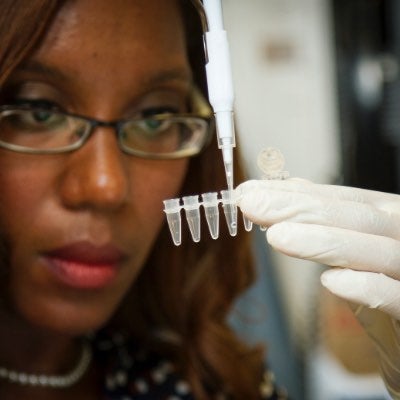
August 19, 2025
CMB 352: General Genetics
Introduction to basic genetic principles and concepts leading to an understanding of genes, heredity, and the nature of inherited variation.

May 27, 2025
CMD 272: Auditory and Speech Mechanisms
Structure and function of the organs of hearing and speech as they relate to normal and pathological communication; theories of cortical involvements, central and peripheral nervous systems relevant to rehabilitation procedure.
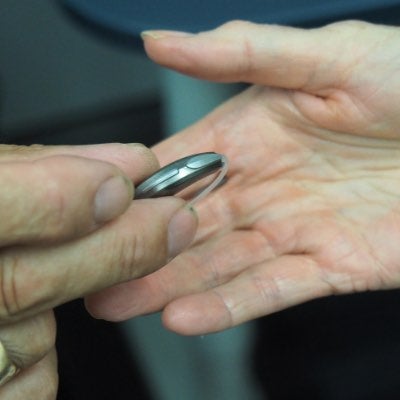
August 19, 2025
CMD 375: Language Development
Development phenomena in speech and language; causal factors of delayed speech and language; survey of evaluative and habilitative programs for children with deviant language development.

February 3, 2026
CMD 550: Audiology for Speech Pathologists
Introduction to audiology for the speech-language pathology graduate student.

May 27, 2025
CMD 570: Clinical Practicum In Communicative Disorders
Supervised assessment and rehabilitation procedures with persons experiencing communicative disorders in speech-language pathology and/or audiology.

August 19, 2025
COM 100: Communication Fundamentals
Integrates basic theory and experience in a variety of communication contexts including public speaking, small groups, and interpersonal communication.

COM 100: Communication Fundamentals
Integrates basic theory and experience in a variety of communication contexts including public speaking, small groups, and interpersonal communication.

COM 100: Communication Fundamentals
Integrates basic theory and experience in a variety of communication contexts including public speaking, small groups, and interpersonal communication.

May 27, 2025
COM 108G: Spaceship Earth: Communication and Sustainability
Through in-depth study of films, social media and readings students will explore the principles of sustainability and the communication challenges linking scientific evidence, public policies and individual behavior.
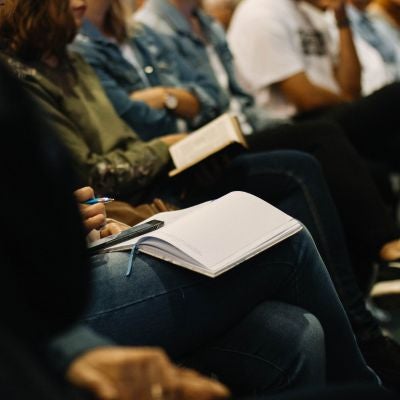
February 10, 2026
COM 108G: Spaceship Earth: Communication and Sustainability
Through in-depth study of films, social media and readings students will explore the principles of sustainability and the communication challenges linking scientific evidence, public policies and individual behavior.

May 27, 2025
COM 202: Public Speaking
Theory, attitudes and skills essential to effective and ethical public communication.

August 19, 2025
COM 221: Interpersonal Communication
Examines basic theory and skills, including impart of perception, self-concept, listening, nonverbal messages, and language on interpersonal communication, including conflict, relationship development, friendship, family and romantic relationships.

COM 310: Playstate: Comm & Modern Video
Analysis of contemporary rhetorical theories as they relate to speaking in business, civil rights, education, government, labor, law, and religion.

February 3, 2026
COM 315: Environmental Dimensions of Communication
Investigation of individual and mediated sustainability messages, impact of communication on environmental knowledge, attitudes and behavior; design of communication campaigns to affect resource use, community engagement an.

February 10, 2026
COM 321G: Social Media and Interpersonal Communication
Explore theories and research on interpersonal communication and social media.

August 19, 2025
COM 321G: Social Media and Interpersonal Communication
Explore theories and research on interpersonal communication and social media.

May 27, 2025
COM 322: Gender and Communication
Survey of theories and research on gender and communication.

August 19, 2025
COM 326: Family Communication
Examines family communication from a symbolic interaction and systems theory perspective.

February 3, 2026
COM 361: Intercultural Communication
Study of cultural similarities and differences as they affect communication within and across cultural boundaries.

August 19, 2025
COM 361: Intercultural Communication
Study of cultural similarities and differences as they affect communication within and across cultural boundaries.

May 27, 2025
COM 382: Communication Theory
A critical survey of social science based communication theories; an examination of the nature, processes and functions of communication theory in a variety of contexts.

August 19, 2025
COM 382: Communication Theory
A critical survey of social science based communication theories; an examination of the nature, processes and functions of communication theory in a variety of contexts.

May 27, 2025
COM 383: Rhetorical Theory
Surveys and analyzes rhetorical communication theories and theorists from classical to contemporary times and focuses on rhetoric's relationship with philosophy, knowledge, reason, science, technology, and culture.

August 19, 2025
COM 440: Media Effects: Entertainment
Surveys social scientific theories and research on contemporary entertainment media.

August 19, 2025
COM 440: Media Effects: Entertainment
Surveys social scientific theories and research on contemporary entertainment media.

May 27, 2025
COM 442: Strategic Media Communication
Introduces strategic media relation tactics when responding to the media, specifically crisis communication situations.

August 19, 2025
COM 442: Strategic Media Communication
Introduces strategic media relation tactics when responding to the media, specifically crisis communication situations.

May 27, 2025
CPL 202: Introductory Urban Geography: Understanding Cities
Introduction to the origin and development of cities in the U.

August 19, 2025
CPL 202: Introductory Urban Geography: Understanding Cities
Introduction to the origin and development of cities in the U.

May 27, 2025
CSC 106: The Joy of Programming
The art of problem solving through computer programming.
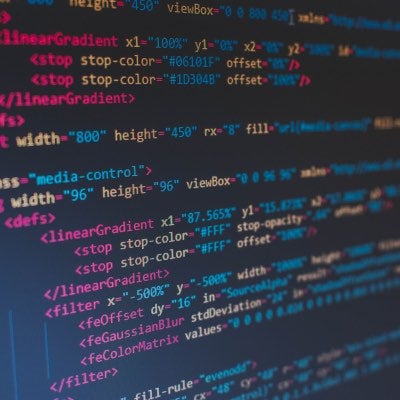
August 19, 2025
CSC 110: Survey of Computer Science
Broad introduction to computer science, with an emphasis on problem solving.

CSC 110: Survey of Computer Science
Broad introduction to computer science, with an emphasis on problem solving.

CSC 201: Programming With Data
Transform data into insight using data science techniques including obtaining, analyzing, synthesizing, visualizing and presenting significant trends as well as computer characteristics, algorithms, data representation and program development.

CSC 301: Fundamentals of Programming Languages
Organization of programming languages, data and control structures, syntax and semantics, compilers and interpreters.

February 3, 2026
CSC 301: Fundamentals of Programming Languages
Organization of programming languages, data and control structures, syntax and semantics, compilers and interpreters.
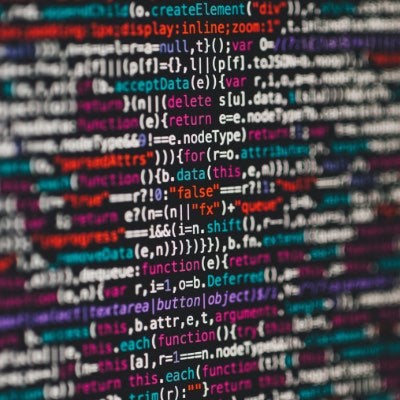
August 19, 2025
CSC 310: Programming for Data Science
Data driven programming; data sets, file formats and meta-data; descriptive statistics, data visualization, and foundations of predictive data modeling; accessing web data and data bases; distributed data management.

CSC 477: Computer Science Internship
Supervised internship in computer science that prepares students for careers in industry.
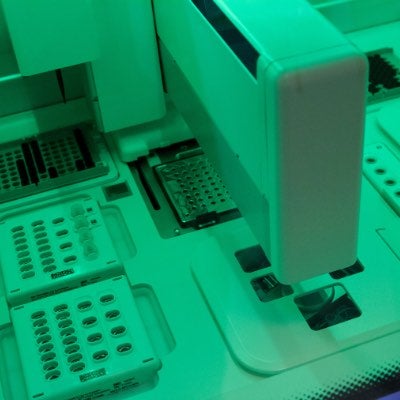
CVE 220: Mechanics of Materials
Mechanical properties of materials; analysis of members under axial, torsional, and transverse loads; stress and strain; beam deflections, and introduction to statically-indeterminate beams and buckling of columns.

February 10, 2026
CVE 220: Mechanics of Materials
Mechanical properties of materials; analysis of members under axial, torsional, and transverse loads; stress and strain; beam deflections, and introduction to statically-indeterminate beams and buckling of columns.

CVE 323G: Humanitarian Engineering
Focuses on creating awareness about the challenges that under-served communities are facing locally and globally and how to solve them using appropriate and sustainable technologies.

DSP 181G: The Information Age: From Politics to Medicine
How big data affects our society, from advertising to politics to medicine.
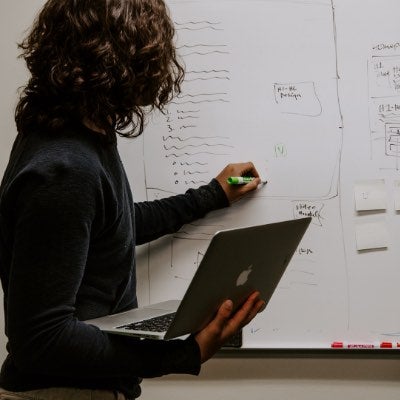
February 3, 2026
ECN 201: Principles of Economics: Microeconomics
Principles underlying resource allocation, production, and income distribution in a market economy.

August 19, 2025
ECN 201: Principles of Economics: Microeconomics
Principles underlying resource allocation, production, and income distribution in a market economy.

May 27, 2025
ECN 202: Principles of Economics: Macroeconomics
Principles underlying aggregate demand and aggregate supply in a market economy.

August 19, 2025
ECN 202: Principles of Economics: Macroeconomics
Principles underlying aggregate demand and aggregate supply in a market economy.

May 27, 2025
ECN 334: Money, Financial Markets, and Monetary Policy
Structure and functioning of monetary institutions.

ECN 390: Economics of Sports
This course will apply economic theory to various topics such as labor relations, contract negotiations between management and professional athletes, measuring why there is income inequality between men and women professional athlete, the impact revenue sharing, luxury tax, and salary cap have on professional sports teams, and financing sports stadiums.

EDC 102: Introduction To American Education
Introduction to the fundamental structure, functions, and problems of American education.
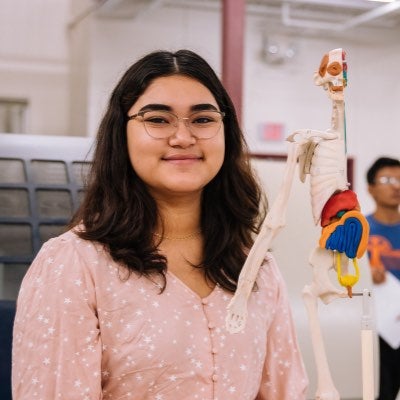
February 3, 2026
EDC 102: Introduction To American Education
Introduction to the fundamental structure, functions, and problems of American education.

August 19, 2025
EDC 102: Introduction To American Education
Introduction to the fundamental structure, functions, and problems of American education.

May 27, 2025
EDC 103G: Education and Social Justice
Focusing on race, cultural diversity, socio-economic status, disabilities, and sexual orientation, this course will facilitate students' examination of their own stereotypes to analyze how to be a social justice advocate.

February 3, 2026
EDC 150G: 50 Million Strong
This course will explore the concepts of health and physical literacy to benefit the healthy development of the whole child to create a society of 50 million people strong.

August 19, 2025
EDC 203: Mental Health First Aid
Mental Health First Aid teaches you how to identify, understand and respond to signs of mental illness and substance use disorders.

EDC 280: Teacher Program Prep and Career Development-Math
Overview and review of required mathematics content and skills for admission into teacher certification programs.

EDC 280: Teacher Program Prep and Career Development-Math
Overview and review of required mathematics content and skills for admission into teacher certification programs.

May 27, 2025
EDC 281: Teacher Program Prep and Career Development-Reading
Overview and review of required reading content and skills for admission into teacher certification programs.

August 19, 2025
EDC 282: Teacher Program Prep and Career Development-Writing
Overview and review of required writing content and skills for admission into teacher certification programs.

EDC 312: The Psychology of Learning
An analysis of learning with emphasis on principles and procedures applicable to any human teaching and learning situation.

EDC 312: The Psychology of Learning
An analysis of learning with emphasis on principles and procedures applicable to any human teaching and learning situation.

May 27, 2025
EDC 316: Foundations in Early Childhood Care & Education
This foundational course prepares aspiring early childhood educators to develop their teaching philosophy, skills, and practices aligned with educational theories.

August 19, 2025
EDC 401: Current Issues in Health Education
Designed to develop student awareness of contemporary issues that are of concern to school health and other health educators.
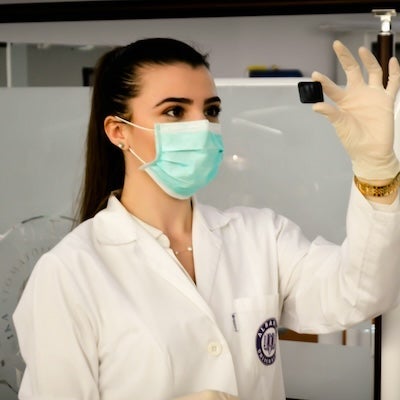
February 12, 2026
EDC 402: The Education of Special Needs Students
Legislative, judicial, social and psychological issues related to assessment, identification, and education of students with special needs in general education classrooms.

February 3, 2026
EDC 402: The Education of Special Needs Students
Legislative, judicial, social and psychological issues related to assessment, identification, and education of students with special needs in general education classrooms.

August 19, 2025
EDC 436: Embracing the Digital Era in Early Childhood Education
This course explores the question posed by Faith Rogow (2022), How have digital communication technologies changed what it means to be literate, and what do the changes in literacy mean for our practice as educators?? Intentional digital technology integration is less about "what" tools to use but more about "how" we use digital tools to engage, motivate, and build agency for young children.

February 3, 2026
EDC 501: Socio-Cultural Aspects of Language Minority Education
An analysis of the social, political, historical, cultural, economic, and linguistic factors affecting educational quality and access of language minority students.

August 19, 2025
EDC 506: Researching Language in Educational Settings
An introduction to quantitative and qualitative research methods and design, data collection strategies, and methods of data analysis and interpretation in a second language-learning context.

May 27, 2025
EDC 515: Structured English Immersion and Sheltered English
Methods and materials of Structured English Immersion and Sheltered English emphasizing teaching strategies for content and language learning.

EDC 519: Teaching Internship in TESOL/Dual Language Immersion
Students apply content learned in methods course and prior course work to classroom and other educational settings with multilingual learners.

August 19, 2025
EDC 520: Translanguaging Pedagogy
This course offers an introduction to the concept of translanguaging as a theoretical framework and pedagogical approach for understanding and leveraging bi/multilingual students' linguistic resources across diverse educational contexts.

EDC 557: Developing and Delivering Effective Presentations
Examines effective strategies to create and deliver impactful presentations to adult audiences.

EDC 558: Mentoring Applications: Formal and Informal
Delves into a variety of strategies and formats (face-to-face, online, collaborative, etc.
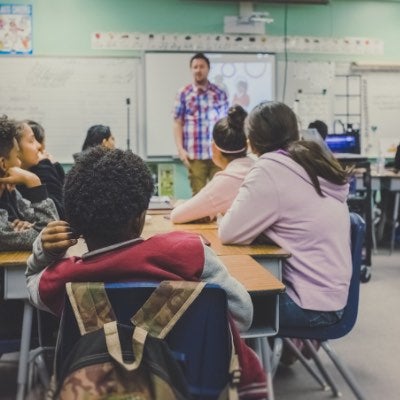
May 27, 2025
EDC 559: Skill Development from Novice to Expert
Based upon the Dreyfus and Dreyfus Novice to Expert Skill Model, this course will examine strategies to enhance individuals and groups’ skill development in a variety of fields.

August 19, 2025
EDC 563: Literacy for Multicultural Populations
Selecting and developing appropriate materials and strategies for assessing and teaching reading/literacy to English Language Learners and those whose cultural and socioeconomic backgrounds vary.

EDC 581: Administering Adult Programs
Administration, personnel management, resource management, recruitment, development, and supervision within programs dealing with adults as learners.

May 27, 2025
EDC 588: Disability Sports
Sports and recreational opportunities for individuals with disabilities; federal legislation effecting participation opportunities; spectrum of participation in community recreation to elite athletic opportunities within various disability sports organizations and events.
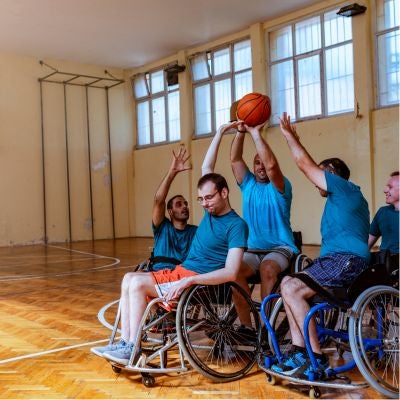
August 19, 2025
EDC 593: Professional Learning Communities(PLCs) in Pre-K-12 Settings
This course is designed to support teachers and administrators in PreK-12 schools to develop and facilitate professional learning communities (PLCs) on a timely and relevant topic in education.

February 13, 2026
EDL 502: Fiscal Management for Educational Leaders
Analyze systems for financing U.S. public schools. Examine Rhode Island's financing, budgeting, facilities finance, purchasing, and entrepreneurship.

February 3, 2026
EDP 609: Critical Paradigms and Justice in Education
This course provides an overview of critical perspectives in educational research and implications for social justice.

EDS 503: Positive Behavior Supports
Provides future special educators with the knowledge and skills to examine causes of behaviors, to teach pro-social behaviors and to develop individualized positive behavioral supports.

August 19, 2025
EEC 105: Introduction to Resource Economics
Application of microeconomic principles to selected resource problem areas.

February 4, 2026
EEC 105: Introduction to Resource Economics
Application of microeconomic principles to selected resource problem areas.

ELE 212: Linear Circuit Theory
Kirchhoff's Laws, DC-resistive networks, dependent sources, operational amplifier circuits, natural and forced response of first- and second-order circuits, sinusoidal steady-state response, phasors, AC power.

February 3, 2026
ELE 313: Signals and Systems I
Properties of linear, time-invariant systems, transient and steady-state response, stability, convolution, Laplace transform and transfer functions, introduction to control systems, Fourier series, Fourier transform, introduction to filters.

February 6, 2026
ENG 241: U.S. Literature I
Selections from U.S. literature, beginnings to the mid-19th century.

May 27, 2025
ENG 263: Introduction to Literary Genres: The Poem
Introduction to the study of the poem.

February 12, 2026
ENG 304: Mystery Genre
Literary study of the particular conventions and evolution of one or more film genres (e.

February 13, 2026
ENG 304: The Horror Film
This course will introduce students to film genres and then proceed to give students grounding more particularly with the horror, musical, and suspense genres.

May 27, 2025
ENT 455: Sustainable Pest Management
Review of historical and current pest management practices with respect to insect ecology.

February 3, 2026
FIN 220: (BUS) Financial Management
Study of the basic principles of finance and the applications of these principles.

August 19, 2025
FIN 431: Financial Technologies
The financial services industries are changing with the emergence of financial technology (FinTech).

February 17, 2026
FLM 101: Introduction to Film Media
Introduction to techniques of film practice, film history, genres, analysis of film texts, and reading of film images in their aesthetic, cultural, and literary context.

August 19, 2025
FLM 101: Introduction to Film Media
Introduction to techniques of film practice, film history, genres, analysis of film texts, and reading of film images in their aesthetic, cultural, and literary context.

February 17, 2026
FLM 101: Introduction to Film Media
Introduction to techniques of film practice, film history, genres, analysis of film texts, and reading of film images in their aesthetic, cultural, and literary context.

May 27, 2025
FLM 205: History of Film II
A survey of world cinema from the 1950's to 2000, examining the production, distribution and exhibition of narrative, documentary and experimental among other forms of film.

FLM 351: Exhibition Strategy
Application of one or more production technologies in film media genres and analysis of their aesthetic implications.

February 11, 2026
FLM 351: Narrative Pre-Production
Application of one or more production technologies in film media genres and analysis of their aesthetic implications.

August 19, 2025
FLM 352: Netflix and Conquer
This course will investigate the technological, artistic, creative, and industry forces that have marked the development of streaming television through Netflix and its influence on US and global film.

FRN 152: Contemporary France
Study the French identity through selected readings and films.

February 3, 2026
FRN 320: Studies in French Cinema
Study of major French/Francophone film genres and of prominent French/Francophone directors.

August 19, 2025
FRN 412: French dystopian literature in the digital age: Panorama by Lilia Hassaine.
This five-week course combines the reading of Lilia Hassaine's Panorama with a critical reflection on the risks of a fully digitized world, while introducing students to how contemporary books are promoted in France at the time of their release, through literary prizes, author interviews, literary TV shows, and other media platforms.

May 27, 2025
GEG 202: Introductory Urban Geography: Understanding Cities
Introduction to the origin and development of cities in the U.

August 19, 2025
GEG 202: Introductory Urban Geography: Understanding Cities
Introduction to the origin and development of cities in the U.

May 27, 2025
GER 102: Beginning German II
Learn to communicate in German about the past, present and future, and continue exploring diverse German-speaking cultures.

August 19, 2025
GWS 150: Introduction to Gender and Women’s Studies
Images of women, the theories and processes of socialization, historical perspectives, and implications for social change.

GWS 150: Introduction to Gender and Women’s Studies
Images of women, the theories and processes of socialization, historical perspectives, and implications for social change.

May 27, 2025
GWS 330: Gender and the Holocaust
This course will examine the Holocaust, Nazi ideology, and antisemitism from the perspective of gender.

February 3, 2026
GWS 350: Intimate Lives: Gen, Sex, &Soc
This course explores how intimacy, love, sex, and relationships are shaped by gender, race, sexuality, power, and social institutions.

GWS 350: Women and Health
This course offers a broad introduction to health issues that affect women’s bodies and minds, along with the historical, structural, political, economic, and cultural factors that influence our understanding of health and illness.

GWS 351: Women and Mental Health
Selected areas of study pertinent to gender and women's studies.

February 11, 2026
HDF 130G: “This is Us”: Individual and Family Development
Students in this course will learn about contemporary issues of human development, family systems, and cultural diversity based on the television show, This is Us.

August 19, 2025
HDF 150: Human Sexuality
Interdisciplinary approach to the study of individual and societal determinants in the development, integration, and expression of human sexuality and a code of sexual behavior.

HDF 150: Human Sexuality
Interdisciplinary approach to the study of individual and societal determinants in the development, integration, and expression of human sexuality and a code of sexual behavior.

May 27, 2025
HDF 200: Life Span Development I
Physical, social, cognitive, and emotional growth and development of young children within the family and varied cultural settings.

August 19, 2025
HDF 200: Life Span Development I
Physical, social, cognitive, and emotional growth and development of young children within the family and varied cultural settings.

May 27, 2025
HDF 201: Life Span Development II
Physical, social, cognitive, and emotional growth and development from adolescence to senescence.

HDF 205G: Money Skills for Life
An interdisciplinary framework to review important personal financial issues and to offer applicable tools to help students make good financial choices on earning, spending, borrowing, protecting, investing and saving money.

August 19, 2025
HDF 205G: Money Skills for Life
An interdisciplinary framework to review important personal financial issues and to offer applicable tools to help students make good financial choices on earning, spending, borrowing, protecting, investing and saving money.

May 27, 2025
HDF 230: Couple and Family Relationships
Intimate romantic and family relationships are explored across the life span.

August 19, 2025
HDF 250: Helping Skills for Counselors and Health Professionals
Introduces foundational skills of listening, interviewing, and basic counseling used to build rapport and enact change in a variety of healthcare settings.

February 3, 2026
HDF 318G: Health and Wealth
This course will draw from the disciplines of economics, public policy, public health, and consumer behavior to offer a comprehensive understanding of the intersection of health and wealth.

August 19, 2025
HDF 318G: Health and Wealth
This course will draw from the disciplines of economics, public policy, public health, and consumer behavior to offer a comprehensive understanding of the intersection of health and wealth.

May 27, 2025
HDF 357: Family and Community Health
Individual, family and community health concerns throughout the lifespan.

August 19, 2025
HDF 357: Family and Community Health
Individual, family and community health concerns throughout the lifespan.

May 27, 2025
HDF 381: Exploring Internships in Human Service Agencies
To prepare HDF students to identify goals and professional interests in human services before applying for Senior Field Placement.

August 19, 2025
HDF 437: Law and Families in the United States
Investigating family roles, relationships, rights, and responsibilities as defined by the law.

HDF 450: Introduction to Counseling
Introduces students in human sciences to interviewing and counseling skills in both professional and paraprofessional settings.

May 27, 2025
HDF 480: Senior Field Experiences in Community Agencies
Senior field experience in community agencies (Practicum) Service learning.

August 19, 2025
HDF 481: Field Experience Seminar and Reflections
Group discussion of field experience in community agencies and related academic assignments.
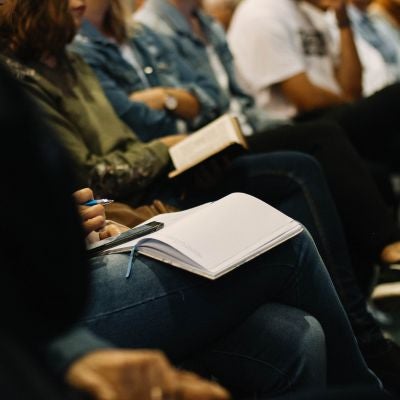
HDF 570: Preventive Research Methods
Students will learn how to analyze and write about research and develop a research strategy in prevention science.
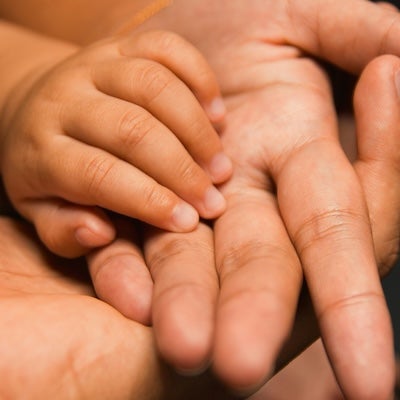
February 3, 2026
HIS 396: Archaeology Field School
Archaeology field experience, usually provided through a terrestrial or underwater field school.
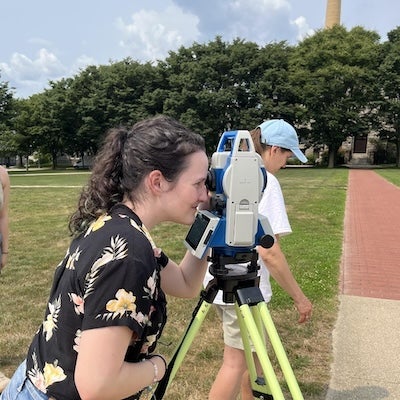
February 3, 2026
HLT 101G: Perspectives on Public Health in the 21st Century
This course is designed to introduce students to current and controversial public health topics.

HLT 201: Contemporary Public Health Challenges in the US
This course is designed to introduce students to current and controversial public health challenges.

February 5, 2026
HLT 300: Interdisciplinary Approaches to Public Health
The course explores intermediate concepts, theories, and research in interdisciplinary perspectives on public health.

HLT 401: Current Issues in Health Education
Designed to develop student awareness of contemporary issues that are of concern to school health and other health educators.
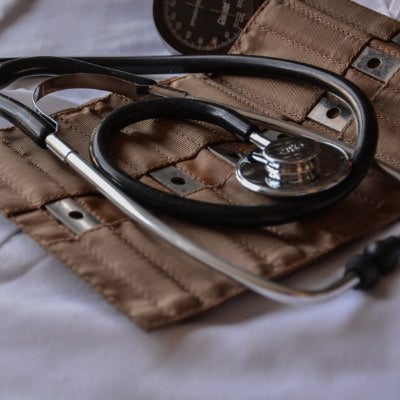
February 3, 2026
HLT 505: Social and Behavioral Influences on Public Health
Concepts and methods of social and behavioral sciences relevant to identifying and solving public health problems, including a focus on health promotion and health communications.

HLT 507: Program Evaluation in Public Health
Program evaluation is essential for public health, and this course is designed to help students develop the fundamentals of evaluation research as it applies to public health interventions/programs and policies.
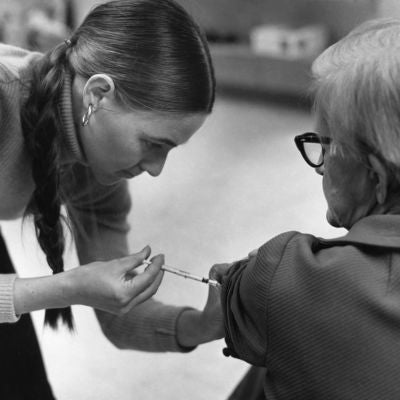
INE 315: (BUS) Legal Environment of Business
An introduction to the origins, framework, and concepts of the legal environment of business.

August 19, 2025
INE 315: (BUS) Legal Environment of Business
An introduction to the origins, framework, and concepts of the legal environment of business.

May 27, 2025
JOR 110: Introduction to Mass Media
Surveys newspapers, magazines, radio, movies, television, advertising, and emerging technologies.

February 3, 2026
JOR 340: Public Relations Strategies
Principles and procedures in public relations: emphasis on role of the public relations practitioner as a specialist in communication; analysis of publications produced as a part of public relations.

JOR 340: Public Relations Strategies
Principles and procedures in public relations: emphasis on role of the public relations practitioner as a specialist in communication; analysis of publications produced as a part of public relations.

JOR 443: Strategic Media Communication
Introduces strategic media relation tactics when responding to the media, specifically crisis communication situations.

February 12, 2026
JOR 443: Strategic Media Communication
Introduces strategic media relation tactics when responding to the media, specifically crisis communication situations.

JPN 201: Intermediate Japanese I
Aims to improve listening and speaking skills and communication strategies and develop basic reading and writing skills through intensive practice (Lec.

August 19, 2025
KIN 122: Human Anatomy and Physiology
Structure and function of organ systems of the human body with emphasis on applications to human health.

August 19, 2025
KIN 123: Living Well: The Applied Science of Health
Scientific basis of personal health and wellness.
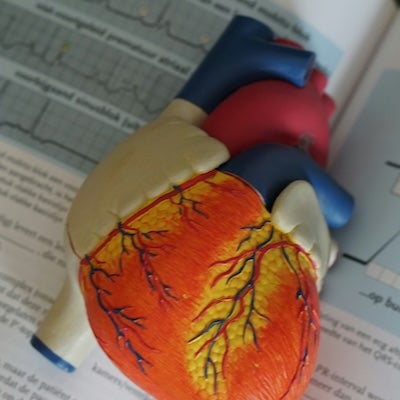
February 3, 2026
KIN 123: Living Well: The Applied Science of Health
Scientific basis of personal health and wellness.

August 19, 2025
KIN 222: Medical Terminology
Framework for medical terminology used by health care professionals.

May 27, 2025
KIN 243: Prevention And Care Of Athletic Injuries
Introduces concepts of injury prevention, recognition and management of athletic injuries, accelerated rehabilitation, and emergency management in athletic settings.

KIN 275: Introduction to Exercise Science
Introduction to the field of exercise science.

August 19, 2025
KIN 300: Physiology of Exercise
Applied human physiology, with applications to physical activity, exercise, and sport.

KIN 301: Physiology of Exercise Laboratory
Student participation in laboratory sessions designed to understand the physiology of exercise relating to body composition, EKG, pulmonary, and metabolic functions.

KIN 375G: Exercise is Medicine
Explores the biological and physiological mechanisms related to physical activity and exercise-induced enhancement of physical and mental health.

February 3, 2026
KIN 381: Exercise Behavior and Psychosocial Outcomes
Review of theories of how psychological factors and interventions can affect exercise behavior and examine the psychosocial outcomes that are influenced by engaging in exercise both acutely and chronically.

May 27, 2025
KIN 420: Fitness Programs for Individuals with Chronic Diseases
Theory and application of physical fitness programs and testing of individuals with cardiovascular, musculoskeletal, and metabolic diseases.

August 19, 2025
KIN 484: Supervised Field Work
Supervised internship in clinical, community, corporate, or commercial settings.
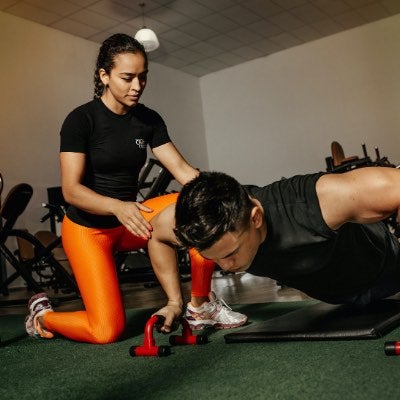
February 13, 2026
LAR 201: Survey of Landscape Architecture
Introduction to landscape design theory and composition as an applied art form.

August 19, 2025
LHR 533: The Business of Employee Benefits
This course will provide students with a foundational understanding of the employee benefits marketplace, with a strong focus on designing effective benefit packages and sharing the intent of the strategy with different business stakeholders.

May 27, 2025
MBA 500: Statistical Methods for Management
Introductory statistical methods applied to business problems.
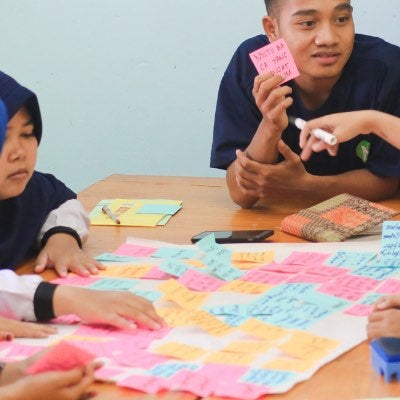
MBA 503: Financial Accounting
Covers basic accounting principles, accounting systems design, and financial reporting issues.

MBA 505: Managerial Marketing
Analysis of marketing problems and determination of marketing policies in product development, promotion, pricing, channel selection; legal aspects.

MBA 530: Legal Environment of Business
Coverage includes both substantive and procedural rules of law in the civil and administrative law field with emphasis on business, regulation, societal, and ethical issues.

May 27, 2025
MBA 560: Operations and Supply Chain Management
The management of manufacturing and service operations.

August 19, 2025
MBA 565: Strategic Management
Integration of functional areas of business through case studies and simulation-based explorations of management problems, and the evaluation of alternative solutions.

May 27, 2025
MBA 576: Sport Marketing
Integrated approach to problems in major areas of business management with emphasis on administrative and executive viewpoint.

February 6, 2026
MBA 578: Human Resource Development
Students will learn about theories of organizational and individual change in the context of three HRM functions: job analysis, performance management and training.

May 27, 2025
MBA 588: Marketing Communications Management
Provides an in-depth knowledge base for developing effective and efficient strategic marketing communications.

MBA 593: Internship in Business Administration
Participation in business administration under the field supervision of a sponsoring organization with evaluation by the College of Business.

February 12, 2026
MCE 262: Statics
Newton's laws of force systems in equilibrium and their effects on particles, systems of particles, and rigid bodies.

February 4, 2026
MCE 263: Dynamics
Kinematic and kinetic study of motion of particles, systems of particles, and rigid bodies, acted upon by unbalanced force systems, using both scalar and vector methods; development of methods of analysis based on the direct application of Newton's laws, work-energy and impulse-momentum principles.

MCE 354: Fluid Mechanics
Physical properties of fluids, development of continuity, energy, and momentum concepts using vector methods; application to problems involving viscous and nonviscous fluids including boundary layer flows, flows in closed conduits and around immersed bodies.
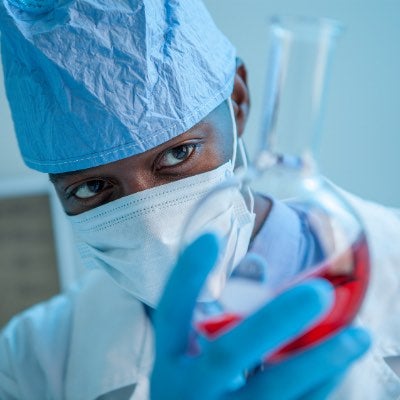
February 17, 2026
MCE 354: Fluid Mechanics
Physical properties of fluids, development of continuity, energy, and momentum concepts using vector methods; application to problems involving viscous and nonviscous fluids including boundary layer flows, flows in closed conduits and around immersed bodies.

February 4, 2026
MGT 201: (BUS 340) Management Foundations: Building Better Businesses
Management concepts, processes and practices with an emphasis on inclusion, agility and evidence based decision making: organizational behavior; individual differences and elements of diversity; interpersonal dynamics and communication; work design, motivation and outcomes; social justice and worker voice; structure (including business functions) and culture.

August 19, 2025
MGT 201: (BUS 340) Management Foundations: Building Better Businesses
Management concepts, processes and practices with an emphasis on inclusion, agility and evidence based decision making: organizational behavior; individual differences and elements of diversity; interpersonal dynamics and communication; work design, motivation and outcomes; social justice and worker voice; structure (including business functions) and culture.

May 27, 2025
MGT 341: (BUS) Organizational Behavior
Introduction to organizational behavior; focus on individual, interpersonal, team and organization factor, and how these shape individuals behaviors at work.

August 19, 2025
MGT 341: (BUS) Organizational Behavior
Introduction to organizational behavior; focus on individual, interpersonal, team and organization factor, and how these shape individuals behaviors at work.

May 27, 2025
MGT 345: (BUS) Business in Society
Examination of the contemporary social, political, cultural, legal and ethical forces that shape the business environment.

August 19, 2025
MGT 445: (BUS) Strategic Management
Case studies, simulation or company analysis used to study strategic theory and practice and problems of functional integration in domestic and global firms.

MGT 445: (BUS) Strategic Management
Case studies, simulation or company analysis used to study strategic theory and practice and problems of functional integration in domestic and global firms.

May 27, 2025
MKT 265: Marketing Principles
An introduction to marketing from a managerial viewpoint, focusing on brand management and marketing strategy.

August 19, 2025
MKT 366: (BUS) Consumer Behavior
A review of the consumer decision-making process and factors that influence consumers, including ethical issues.

MKT 367: Marketing Research
Describes the nature and scope of marketing research activities.

February 6, 2026
MKT 467: (BUS) Customer Analytics
Frameworks and quantitative approaches for implementing strategic customer relationship management, customer-based marketing metrics, essential database marketing tools, supplier/customer selection and targeting.

August 19, 2025
MKT 475: Digital Marketing: Analytics and Strategy
Analyze ways marketers adapt their strategies in digital environments.

MKT 475: Digital Marketing: Analytics and Strategy
Analyze ways marketers adapt their strategies in digital environments.

May 27, 2025
MLS 542: Advanced Clinical Microbiology Practicum
Applies laboratory methodologies to identify, characterize, and classify microbes from clinical microbiology specimens to assist in the diagnosis of infectious disease.

February 3, 2026
MTH 101: Intermediate Algebra
Introduction to algebraic manipulation, solving equations and Inequalities in one variable.

August 19, 2025
MTH 103: Applied Precalculus
Linear, quadratic, power, exponential, logarithmic and periodic functions - their graphs and properties.

MTH 103: Applied Precalculus
Linear, quadratic, power, exponential, logarithmic and periodic functions - their graphs and properties.

May 27, 2025
MTH 107: Introduction to Finite Mathematics
Concepts and processes of modern mathematics concerned with sets, the theory of probability, and statistics.

August 19, 2025
MTH 131: Applied Calculus I
Basic topics in calculus for students who do not need all the topics in 141.

August 19, 2025
MTH 131: Applied Calculus I
Basic topics in calculus for students who do not need all the topics in 141.

May 27, 2025
MTH 141: Calculus I
Topics in functions and their graphs, limits, the derivative, applications to finding rates of change and extrema and to graphing, the integral, and applications.
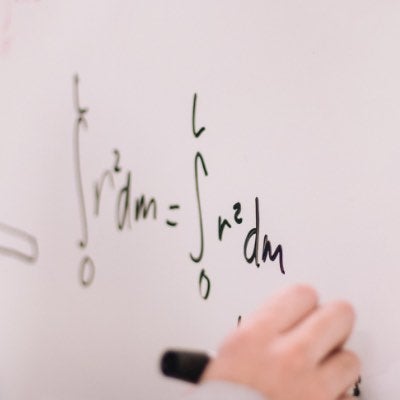
August 19, 2025
MTH 141: Calculus I
Topics in functions and their graphs, limits, the derivative, applications to finding rates of change and extrema and to graphing, the integral, and applications.

May 27, 2025
MTH 142: Calculus II
Continues the study of calculus for the elementary algebraic and transcendental functions of one variable.

August 19, 2025
MTH 142: Calculus II
Continues the study of calculus for the elementary algebraic and transcendental functions of one variable.

February 16, 2026
MTH 142: Calculus II
Continues the study of calculus for the elementary algebraic and transcendental functions of one variable.

May 27, 2025
MTH 180: Mathematical Tools for Computing
Introduction to mathematical tools and to formal methods of reasoning for computing.

August 19, 2025
MTH 215: Introduction to Linear Algebra
Detailed study of finite dimensional vector spaces, linear transformations, matrices, determinants and systems of linear equations.
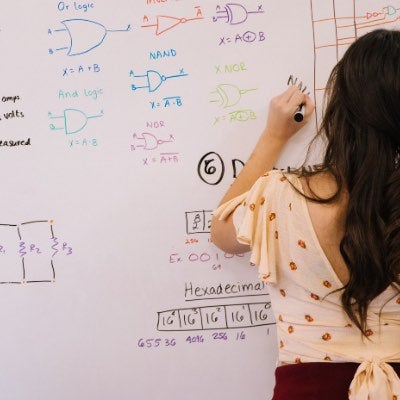
MTH 215: Introduction to Linear Algebra
Detailed study of finite dimensional vector spaces, linear transformations, matrices, determinants and systems of linear equations.

May 27, 2025
MTH 243: Calculus for Functions of Several Variables
Topics include coordinates for space, vector geometry, partial derivatives, directional derivatives, extrema, Lagrange multipliers, and multiple integrals.

August 19, 2025
MTH 243: Calculus for Functions of Several Variables
Topics include coordinates for space, vector geometry, partial derivatives, directional derivatives, extrema, Lagrange multipliers, and multiple integrals.

May 27, 2025
MTH 244: Differential Equations
Classification and solution of differential equations involving one independent variable.
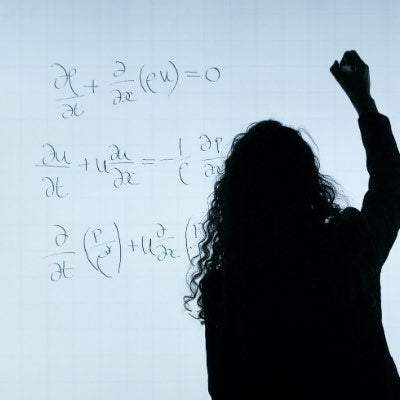
August 19, 2025
MTH 244: Differential Equations
Classification and solution of differential equations involving one independent variable.

May 27, 2025
MTH 451: Introduction to Probability and Statistics
Theoretical basis and fundamental tools of probability and statistics.

February 3, 2026
MUS 101: Introduction to Music
Fosters a better understanding and appreciation of the world's great music.

August 19, 2025
MUS 101: Introduction to Music
Fosters a better understanding and appreciation of the world's great music.

May 27, 2025
MUS 106: History of Jazz
The nature and origin of jazz and its development as an American folk idiom: European and African heritages, blues, ragtime, dixieland, boogie-woogie, swing, bop, cool, funky, gospel, jazz-rock, free-form, and progressive.
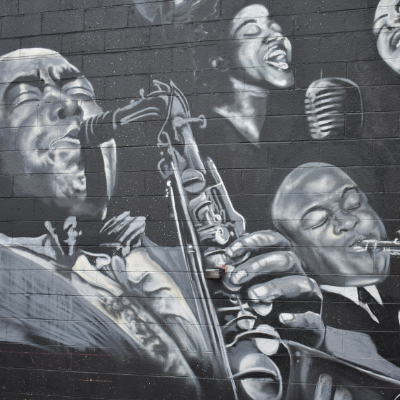
August 19, 2025
MUS 106: History of Jazz
The nature and origin of jazz and its development as an American folk idiom: European and African heritages, blues, ragtime, dixieland, boogie-woogie, swing, bop, cool, funky, gospel, jazz-rock, free-form, and progressive.

May 27, 2025
MUS 111: Basic Musicianship
Use of folk, classical, and popular music to learn essentials of music reading and music theory.

NRS 190: Issues in Biotechnology
Introduction to modern biotechnology in medical, pharmaceutical, forensic, agricultural, marine, and environmental applications.

February 12, 2026
NRS 410: Fundamentals of GIS
Emphasis on using a geographic information system (GIS) to create a geographically referenced spatial database, spatial topology, data visualization, computer-assisted map making, and spatial data query and analysis.

August 19, 2025
NRS 410: Fundamentals of GIS
Emphasis on using a geographic information system (GIS) to create a geographically referenced spatial database, spatial topology, data visualization, computer-assisted map making, and spatial data query and analysis.

NUR 150: Human Sexuality
Interdisciplinary approach to the study of individual and societal determinants in the development, integration, and expression of human sexuality and a code of sexual behavior.

February 10, 2026
NUR 150: Human Sexuality
Interdisciplinary approach to the study of individual and societal determinants in the development, integration, and expression of human sexuality and a code of sexual behavior.

NUR 280G: Social Determinants of Health
An introduction to social determinants of health and social justice from a public health perspective.
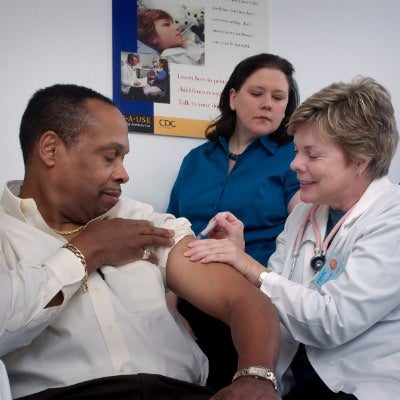
August 19, 2025
NUR 383: Aging and Health
Theories of aging and biological, lifestyle, psychological, social, spiritual, economic and environmental factors affecting aging are presented.

February 3, 2026
NUR 517: Health Care Policy
Development of policy frameworks and their application for understanding current major health care policy issues across lifespan, including economic, political, and ethical dimensions.

February 6, 2026
NUR 518: PMHNP: Neuro-psychopharmacology
Integrates principles of neurobiology and psychopharmacology for effective psychotherapeutic management of individuals with psychiatric mental health problems across the lifespan.

NUR 520: Graduate Study Seminar
A seminar designed to facilitate the synthesis and examination of information learned in the master's program about nursing knowledge development, advancement of nursing practice, and leadership role development.

NUR 547: PMHNP: Practicum III
Practicum course in which students apply theoretical knowledge and skills from foundational courses and previous practica.

NUT 207: General Nutrition
Fundamental concepts of the science of nutrition with application to the individual and community.

August 19, 2025
NUT 207: General Nutrition
Fundamental concepts of the science of nutrition with application to the individual and community.

February 17, 2026
NUT 207: General Nutrition
Fundamental concepts of the science of nutrition with application to the individual and community.

May 27, 2025
NUT 212G: Public Health Nutrition
Introduction to the concepts of public health as it relates to the field of nutrition in population-and individual-based approaches.

February 3, 2026
NVP 425: Peace Psychology
Peace psychology combines aspects of cognitive, social, clinical and cross-cultural psychology that bear on the prevention of violence and the promotion of constructive nonviolent behavior.

August 19, 2025
PHL 101: Critical Thinking
Identification, formulation and evaluation of both inductive and deductive patterns of reasoning.

PHL 101: Critical Thinking
Identification, formulation and evaluation of both inductive and deductive patterns of reasoning.

May 27, 2025
PHL 103: Introduction to Philosophy
Pursues such basic questions as: What is a person? What is knowledge? Are we free? What is moral right and wrong? Does God exist? What is the meaning of death? (Lec.

August 19, 2025
PHL 110G: Love and Sex
This course considers the natures and ethics of love and sex by asking questions like: What is love? What counts as sex? What constitutes consent? What counts as infidelity? (Lec.

PHL 110G: Love and Sex
This course considers the natures and ethics of love and sex by asking questions like: What is love? What counts as sex? What constitutes consent? What counts as infidelity? (Lec.

May 27, 2025
PHL 314: Ethical Problems in Society and Medicine
Ethical analysis of topics such as war, capital punishment, sexual morality, suicide, animal rights, honesty and deception, world hunger, discrimination, abortion.

August 19, 2025
PHL 314: Ethical Problems in Society and Medicine
Ethical analysis of topics such as war, capital punishment, sexual morality, suicide, animal rights, honesty and deception, world hunger, discrimination, abortion.

May 27, 2025
PHP 673: Pharmacotherapy in Physical Therapy
Basic principles of pharmacology, pharmacokinetics, and therapeutic considerations for medications that are encountered by physical therapists

PHT 500: Human Anatomy and Histology
Structure and function of human anatomy as related to physical therapy.
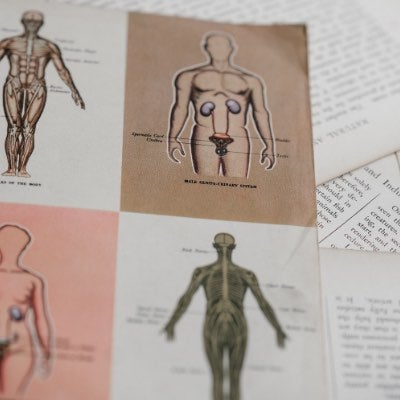
August 19, 2025
PHT 500: Human Anatomy and Histology
Structure and function of human anatomy as related to physical therapy.

PHT 500: Human Anatomy and Histology
Structure and function of human anatomy as related to physical therapy.

PHT 501: Applied Human Anatomy Laboratory
Surface anatomy and basic skills for screening and examination of the musculoskeletal, integumentary and sensory systems of the body.
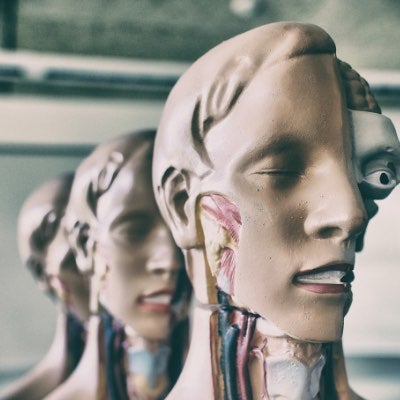
PHT 501: Applied Human Anatomy Laboratory
Surface anatomy and basic skills for screening and examination of the musculoskeletal, integumentary and sensory systems of the body.

PHT 505: Introduction to Physical Therapy
Introduction to the profession of physical therapy including concepts related to disability, rehabilitation, evidence based practice, models of care and introduction to the Guide to Physical Therapist Practice.

PHT 544: Health Promotion in Physical Therapy
Provides physical therapy students with an understanding of their role in wellness and health promotion across systems and the lifespan.

May 27, 2025
PHT 552: Musculoskeletal Therapeutics II: The Spine
Physical Therapy management of individuals with, and the prevention of, impaired joint mobility, motor function, muscle performance, range of motion, and reflex integrity associated with musculoskeletal dysfunction in the spine.
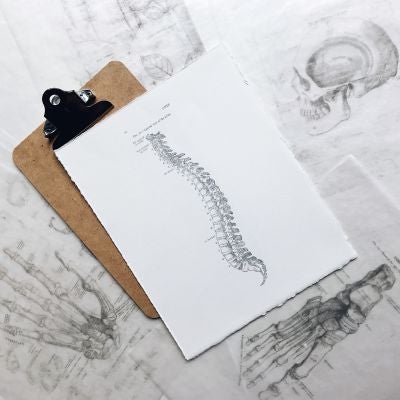
August 19, 2025
PHT 575: Physical Therapy Internship I
Assignment to various clinical settings that provide supervised experiences with practicing physical therapists and support personnel.

February 3, 2026
PHT 610: Evidence-Based Inquiry I
Introduces the student to the concept of evidence based inquiry and its importance in the physical therapy profession.

PHT 610: Evidence-Based Inquiry I
Introduces the student to the concept of evidence based inquiry and its importance in the physical therapy profession.

PHT 610: Evidence-Based Inquiry I
Introduces the student to the concept of evidence based inquiry and its importance in the physical therapy profession.

PHT 610: Evidence-Based Inquiry I
Introduces the student to the concept of evidence based inquiry and its importance in the physical therapy profession.

PHT 610: Evidence-Based Inquiry I
Introduces the student to the concept of evidence based inquiry and its importance in the physical therapy profession.

PHT 610: Evidence-Based Inquiry I
Introduces the student to the concept of evidence based inquiry and its importance in the physical therapy profession.

PHT 610: Evidence-Based Inquiry I
Introduces the student to the concept of evidence based inquiry and its importance in the physical therapy profession.

PHT 610: Evidence-Based Inquiry I
Introduces the student to the concept of evidence based inquiry and its importance in the physical therapy profession.

PHY 185: Laboratory for General Physics I
Selected laboratory exercises applicable to materials in PHY 111.

August 19, 2025
PHY 186: Laboratory for General Physics II
Selected laboratory exercises applicable to materials in PHY 112.

May 27, 2025
PHY 204: Elementary Physics II
Introduction to electricity and magnetism, leading to Maxwell's equations.

May 27, 2025
PHY 205: Elementary Physics III
Introduction to topics of thermodynamics, kinetic theory, wave motion, acoustics, and optics.

August 19, 2025
PHY 273: Elementary Physics Laboratory I
Laboratory exercises and recitation sessions related to topics in PHY 203.

PHY 274: Elementary Physics Laboratory II
Laboratory exercises and recitation sessions related to topics in PHY 204.

May 27, 2025
PHY 275: Elementary Physics Laboratory III
Laboratory exercises and recitation sessions related to topics in PHY 205.

August 19, 2025
PLS 132G: Sustainable Agriculture, Food Systems, and Society
Food is essential to life, and a foundation of civilization.

PLS 132G: Sustainable Agriculture, Food Systems, and Society
Food is essential to life, and a foundation of civilization.

May 27, 2025
PLS 150: Plants, People and the Planet
Fundamentals of plant biology, emphasizing the structure, physiology, and ecology of vascular plants common to gardens and landscaped environments.

August 19, 2025
PLS 190: Issues in Biotechnology
Introduction to modern biotechnology in medical, pharmaceutical, forensic, agricultural, marine, and environmental applications.

February 12, 2026
PRS 100: Introduction to Public Relations
Examine and explore public relations principles, concepts and emerging trends associated with the role of the PR practitioner.

August 19, 2025
PRS 340: Public Relations Strategies
Principles and procedures in public relations: emphasis on role of the public relations practitioner as a specialist in communication; analysis of publications produced as a part of public relations.

February 3, 2026
PRS 340: Public Relations Strategies
Principles and procedures in public relations: emphasis on role of the public relations practitioner as a specialist in communication; analysis of publications produced as a part of public relations.

PRS 442: Strategic Media Communication
Introduces strategic media relation tactics when responding to the media, specifically crisis communication situations.

August 19, 2025
PRS 442: Strategic Media Communication
Introduces strategic media relation tactics when responding to the media, specifically crisis communication situations.

May 27, 2025
PSC 113: Introduction to American Politics
Basic principles of the government of the United States: constitutionalism, separation of powers, federalism, civil liberties; politics; legislative, executive, and judicial organization; functions of government.

PSC 211: World Politics: Theories and Applications
The core course for political science majors pursuing the World Politics Track.

February 3, 2026
PSC 274: Criminal Justice System
The American system of criminal justice, general processing of cases, principal actors, study of theories of criminal law, and pretrial detention and sentencing.

August 19, 2025
PSC 274: Criminal Justice System
The American system of criminal justice, general processing of cases, principal actors, study of theories of criminal law, and pretrial detention and sentencing.

May 27, 2025
PSC 300: Challenge of Nuclear Arms
Nuclear weapons addressed from a range of perspectives.

February 3, 2026
PSC 322: Politics of the Middle East
Designed to foster a rethinking of politics in the Middle East and critically assess current developments in the region and their relationship to global politics.

PSC 371: The Constitution and the Supreme Court
The historical role of the Constitution and the Supreme Court in American democracy.

August 19, 2025
PSC 434: American Foreign Policy
Analysis of the institutions, techniques, and instruments of policy making and the execution of foreign policy.

May 27, 2025
PSC 492: Controversies in Political Science
Significant questions persist in the field of political science.

August 19, 2025
PSY 103: Towards Self-Understanding
Individual and social problems of normal persons.

February 4, 2026
PSY 113: General Psychology
Introductory survey course of the major facts and principles of human behavior.

August 19, 2025
PSY 113: General Psychology
Introductory survey course of the major facts and principles of human behavior.

February 4, 2026
PSY 200: Quantitative Methods in Psychology
Basic concepts and techniques of quantification in psychology.

February 3, 2026
PSY 254: Introduction to Psychopathology
An overview of sociocultural and scientific theories of mental health conditions typically encountered in mental health settings.

PSY 255: Health Psychology
Investigates the relationship between behavior and health; emphasizes the theory and science of health behavior change; explores specific behaviors and behavior change strategies from an individual and public health perspective.

August 19, 2025
PSY 310: History and Systems of Psychology
Origins of psychological inquiry and theories of psychology.

PSY 335: The Psychology of Social Behavior
Conceptual and empirical analyses of individual behavior in social contexts; attention to social motivation, attitude development and change, liking, conformity, aggression, altruism.
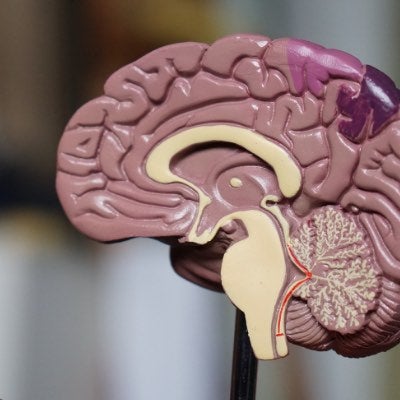
February 3, 2026
PSY 335: The Psychology of Social Behavior
Conceptual and empirical analyses of individual behavior in social contexts; attention to social motivation, attitude development and change, liking, conformity, aggression, altruism.

PSY 340: Introduction to School Psychology
Introduces students to the field of school psychology by covering the history of the field, current practices, ethical and legal considerations, and the process of becoming a school psychologist.

February 13, 2026
PSY 381: Physiological Psychology
Physiological mechanisms operative in human behavior.

August 19, 2025
PSY 399: Introduction to Multicultural Psychology
Introduction to multiculturalism as major paradigm.

PSY 399: Introduction to Multicultural Psychology
Introduction to multiculturalism as major paradigm.

May 27, 2025
PSY 425: Peace Psychology
Peace psychology combines aspects of cognitive, social, clinical and cross-cultural psychology that bear on the prevention of violence and the promotion of constructive nonviolent behavior.

August 19, 2025
PSY 479: IndustrialOrganizational Psych
Central issues in the field of psychology, allowing in-depth study of contemporary or historical topics.

February 3, 2026
PSY 479: IndustrialOrganizational Psych
Central issues in the field of psychology, allowing in-depth study of contemporary or historical topics.

SCA 255: (BUS) Operations and Supply Chain Management
Operations management problems in global and domestic environments.

May 27, 2025
SMC 477: Internship in Sports Media and Communication
Provides the student with direct supervised participation in a variety of communication situations and occupations.

August 19, 2025
SOC 100: Introduction to the Sociological Perspective
Sociological approaches to inequality and contemporary social issues regarding race, ethnicity, class, gender.

SOC 100: Introduction to the Sociological Perspective
Sociological approaches to inequality and contemporary social issues regarding race, ethnicity, class, gender.

May 27, 2025
SOC 212: Sociology of the Family
Examines the role of families in maintaining and changing society.

February 4, 2026
SOC 240: Race and Ethnicity
Relations among the various ethnic, religious, racial, and political minorities and majorities, with special reference to the United States.

SOC 303: Immersion in Juvenile Social and Legal Justice
Experiential course explores social and legal justice for juveniles in RI.

SOC 437: Law and Families in the United States
Investigating family roles, relationships, rights, and responsibilities as defined by the law.

February 12, 2026
SPA 103: Intermediate Spanish I
Development of intermediate-level communication skills in Spanish and exploration of products, practices and perspectives of diverse Hispanic cultures.

August 19, 2025
SPA 210: Spanish for Heritage Speakers
Language and cultural studies focused on unique interests and competencies of heritage speakers (people who grew up speaking Spanish, but completed formal schooling in a language other than Spanish).
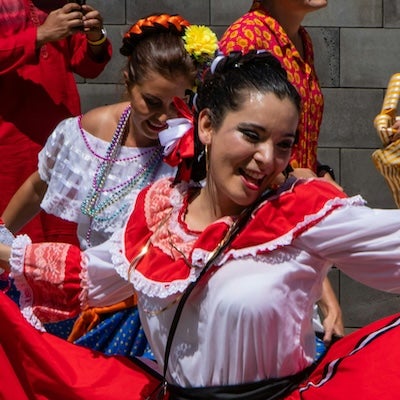
February 3, 2026
SPA 320: Critical Studies in Spanish Cinema
Study of major Spanish film genres and of prominent Spanish film directors.

August 19, 2025
SPA 431: Spanish Golden Age Poetry and Drama
Reading, examination, analysis and critical interpretation of Golden Age Spanish poetry and drama and its impact on subsequent literature.
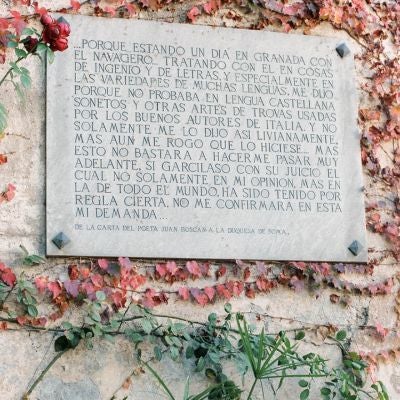
STA 220: Statistics In Modern Society
Introductory statistics exploring and understanding data, relationships between variables, randomness and probability.

STA 220: Statistics In Modern Society
Introductory statistics exploring and understanding data, relationships between variables, randomness and probability.

May 27, 2025
STA 308: Introductory Statistics
Descriptive statistics, presentation of data, averages, measures of variation.

August 19, 2025
STA 308: Introductory Statistics
Descriptive statistics, presentation of data, averages, measures of variation.

May 27, 2025
STA 409: Statistical Methods in Research I
Same as STA 308, but is for students who have better mathematical preparation.

SUS 108G: Spaceship Earth: Communication and Sustainability
Through in-depth study of films, social media and readings students will explore the principles of sustainability and the communication challenges linking scientific evidence, public policies and individual behavior.

February 10, 2026
SUS 108G: Spaceship Earth: Communication and Sustainability
Through in-depth study of films, social media and readings students will explore the principles of sustainability and the communication challenges linking scientific evidence, public policies and individual behavior.

SUS 315: Environmental Dimensions of Communication
Investigation of individual and mediated sustainability messages, impact of communication on environmental knowledge, attitudes and behavior; design of communication campaigns to affect resource use, community engagement an.

THE 338G: Ethical Dilemmas in Contemporary Theatre
Exploration of ethical dilemmas raised by contemporary dramatic works and the history of theatre as a tool for social activism.

August 19, 2025
TMD 126: Introduction to Design
Elements and principles of design as applied to designs from a variety of disciplines, including textiles, apparel, and interiors.

February 3, 2026
TMD 433: Textile Markets
Study of social, economic, and political issues that affect the development, production, and marketing of textile products.

WRT 106: Introduction to Research Writing
Introduction to working with sources and the research process.

August 19, 2025
WRT 227: Professional Writing
Develop the writing and information design skills employers most value; learn to advocate for diverse stakeholders in professional contexts.

WRT 227: Professional Writing
Develop the writing and information design skills employers most value; learn to advocate for diverse stakeholders in professional contexts.

May 27, 2025
WRT 290: Writing with AI
Learn AI-assisted tools for effective academic, professional, and public writing.

August 19, 2025
WRT 332: Technical Writing
Work on writing projects that suit practical needs, share specialized knowledge with diverse audiences, and implement ethical practices of technical communication.

WRT 332: Technical Writing
Work on writing projects that suit practical needs, share specialized knowledge with diverse audiences, and implement ethical practices of technical communication.

May 27, 2025
WRT 442: Strategic Media Communication
Introduces strategic media relation tactics when responding to the media, specifically crisis communication situations.

August 19, 2025
WRT 442: Strategic Media Communication
Introduces strategic media relation tactics when responding to the media, specifically crisis communication situations.

May 27, 2025
“Summer classes made it possible for me to graduate one year early! They are also a great way to tackle financial stressors.”Stephanie Rich ’24








